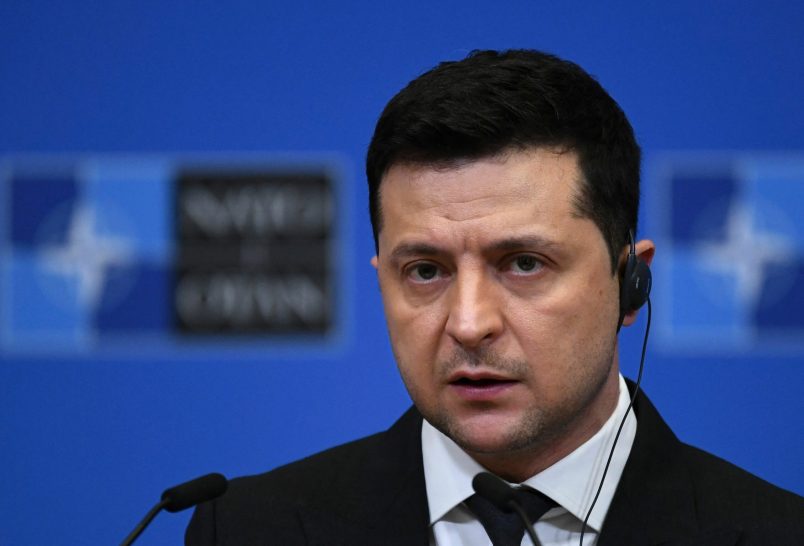A key Ukrainian national security official sat down today and told the country’s allies what they could do to help: please, calm down.
But also: Keep the weapons coming.
“We’re emphasizing this now and articulating to our partners that we cannot afford to let our economy collapse, so we also need help on this issue,” Ukraine National Security Council Chief Oleksiy Reznikov told BBC Ukraine on Monday. “After all, if people go into a state of panic, that’s a very dangerous situation for the country.”
“We are concerned about the availability of weapons to protect against Russian aggression. And when these weapons began to arrive in our country — this is a plus,” he said later in the interview. “Before this was not the case.”
Reznikov’s voice is one of a chorus of Ukrainian officials demanding that people remain calm, and that the country’s Western backers remain level-headed.
The country’s president, Volodymyr Zelensky, said earlier this month that talk of the crisis was “big hype,” before suggesting to the Washington Post that the Russians might take Kharkiv, a city of 1.4 million.
It comes as the American, British, Australian, and German governments ordered partial drawdowns of their embassy staff in Kyiv, citing the risk of a Russian attack.
Both open-source analysts and Western intelligence services have said that Russia has moved a massive amount of combat troops to positions near the Ukrainian border, with some stationed in neighboring Belarus.
An analysis published in Ukraine on Monday by Andriy Zagorodnyuk, the country’s former defense minister, suggested that a major offensive was unlikely, and, were it to take place, would be weeks away.
Instead, Zagorodnyuk posited that a “hybrid invasion” combining cyber attacks and psychological warfare would be more likely.
Ukrainian officials like Reznikov and Foreign Minister Dmytro Kuleba have repeated versions of that analysis: that the threat they face is as much psychological as it is physical. They’ve projected a mixture of fatalism and preparation.
That leads to a few odd tensions: among them, that winning the psychological war against panic might seem to some to involve downplaying the seriousness of the situation — one in which the government is already distributing shelter-in-place pamphlets.
A hashtag trended on social media in Ukraine that reads “we’re prepared” as Ukrainians traded tips on how to prep for everything from bombardment to helping children deal with war-induced trauma.
“Each family wants to learn how to prepare for an emergency and do all that’s needed in advance,” wrote Valery Pekar, a lecturer at a Kyiv university and local activist, as he shared online a pdf of the government-developed pamphlet titled “in case of extraordinary situations or war.”
In Kharkiv, man-on-the-street interviews showed people at a loss when asked whether they had plans for how to react in the event of a Russian invasion.
“I wouldn’t want that to happen,” one older man replied. “What’s there to do? We have matches, salt, sugar.”
One person did say he’d send his family to the dacha, take a machine gun, and “go to war.”
But most said they doubted that an invasion would take place, and that if it did, they weren’t sure what they’d do.
Reznikov, the defense official, told the BBC that he did not regard the collection of Russian forces stationed along the Ukrainian border as enough to stage an invasion.
“This is their territory, and they have the right to move to the left, and to the right,” he said. “Is it unpleasant for us? Yes, it’s unpleasant, but it’s not news to us.”
“The number one task for Russia is to shake up the internal situation in our country,” Reznikov added. “And today, unfortunately, they are very successful.”



